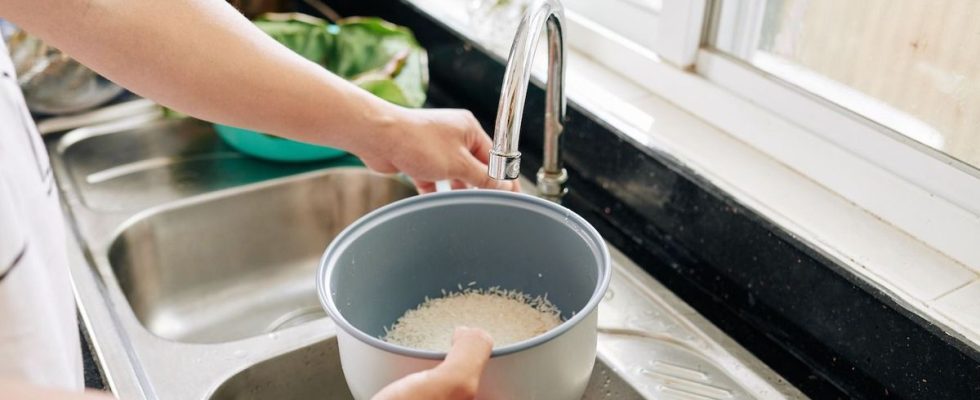Published on
Updated
Reading 2 min.
Whether it is round rice, wild rice or Basmati rice, should you rinse the rice under cold water before cooking it? Doctissimo’s response.
This is a question that comes up regularly around the table. Should you wash rice before cooking it or not? If, for some, it is a necessity, others do not care much about it. But what do the studies say about this? Let’s do a check in.
Wash the rice to remove impurities
Risottos, paella, rice cakes, fried rice… Rice-based dishes number in the hundreds and constitute, for a large part of the world’s population, their daily diet.
But why is rice required to be washed in certain countries?
The reason would be mainly health. Rice, which is packaged directly after harvest and sometimes travels long distances, is often filled with dust, grains of sand, small stones or insects.
It also happens to contain heavy metals and microplastics. In this case, the washing process rinsed up to 20% of the plastics uncooked riceaccording to researchers.
Another benefit of washing: it would eliminate nearly 90% of bioaccessible arsenic (a tasteless and odorless chemical element, naturally present in soils and carcinogenic, editor’s note), but also a large quantity of essential nutrients for the body, such as iron, copper, zinc, etc. Which poses a problem in undernourished populations.
Wash the rice to prevent it from being too sticky
The other advantage of washing rice? It would allow a large quantity of starch contained in its composition to disappear (not to be done when you want to obtain a creamy consistency). By rinsing the rice, the grains will separate more easily from each other.
However, on this subject, opinions differ. Many scientists say that the stickiness of rice is not due to the surface starch, but rather to another starch called amylopectin.
The quantity of amylopectin would thus differ depending on the variety of rice: glutinous rice, for example, is characterized by its very low amylose content and its very high amylopectin content.
Choosing the right variety of rice carefully, rather than washing the rice, would therefore be more effective.
Can washing rice remove bacteria?
To this question, the answer is no. Bacteria are killed at high temperatures. Boiling water will therefore be enough to “disinfect” your rice.
